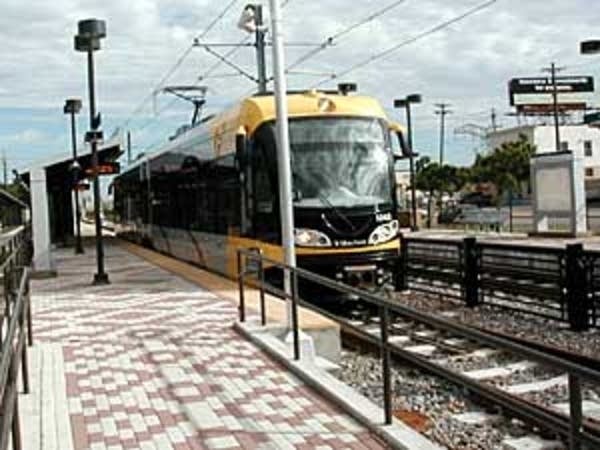U of M light rail tunnel could be back on the table
Go Deeper.
Create an account or log in to save stories.
Like this?
Thanks for liking this story! We have added it to a list of your favorite stories.

Oberstar, who chairs the influential House Transportation Committee, supports the Central Corridor project linking St. Paul and Minneapolis.
The DFLer said a recently passed bill changes how the Federal Transit Administration evaluates transportation projects that are seeking federal money.
Under the old system, Oberstar said the FTA focused on what's known as the cost-effectiveness index. The CEI is a complicated formula that looks at travel times, ridership and construction costs.
[image]
Turn Up Your Support
MPR News helps you turn down the noise and build shared understanding. Turn up your support for this public resource and keep trusted journalism accessible to all.
But Oberstar said the index means the agency essentially ignores other factors, such as environmental benefits and the potential for economic development. He pushed for the recent changes, which will require the FTA to also give comparable weight to five other criteria.
Oberstar said that could open the door for a University of Minnesota tunnel, if that's what local partners want.
"It would at least put the issue back on the table and further give the proponents -- the university president and the University of Minnesota engineering school -- an opportunity to provide new information that in the past, the Federal Transit Administration simply dismissed out of hand," Oberstar said. "It doesn't say the tunnel would be built, but it gives the opportunity to consider new factors and a broader range of information than the FTA has given up to now."
The bill tweaks language in a broader transportation act called SAFETEA-LU. The bill cleared Congress last month and is awaiting the president's signature.
But Met Council Chairman Peter Bell downplays the significance of the legislation, saying it would have little impact on the Central Corridor.
"It doesn't say the tunnel would be built, but it gives the opportunity to consider new factors."
Bell said an underground tunnel would add $200 million to the project's $909 million price tag, and it would push the CEI well above the recommended threshold.
Bell said while the FTA may now consider other factors, the agency will still look at the cost-effectiveness of projects.
"That number still has to be met. They still have a fixed budget they are operating with," Bell said. "The FTA has not informed us of substantive changes to that formula they use that could come near to including the tunnel."
The U gave up on the costly tunnel idea earlier this year and agreed to support a street-level route along Washington Ave.
Over the past month, however, university officials have amplified their concerns about traffic and pedestrian safety. They're also studying an alternative route farther north that would steer the train through Dinkytown.
U officials declined to comment, saying they didn't have enough information on how the federal legislation would affect the project.
On the other end of the route in St. Paul, Ramsey County leaders were also hesitant to say much. They have already agreed on a compromise route that stopped short of the Union Depot concourse.
Ramsey County Regional Rail Authority Chairman Jim McDonough said he doesn't know if the new federal language would allow the possibility of lengthening the route.
"We don't know that it could be on the table, we don't know what it does to the CEI, we don't know what it does to the timeline," said McDonough. "We're moving forward right now on the same principles we have all along."
The Met Council has described September as a crucial deadline. Agency officials have said missing the date by even a month would essentially delay the project for an entire year.
But Oberstar said that may not be the case. He said submitting the application later this fall might not take the project out of the running for that funding year.
He added there may be benefits to waiting, especially once a new president is elected. Oberstar said transit projects will have increased funding at the beginning of the calendar year.
"We have a better chance in the next administration, with a more complete project, that's more fully evaluated on a wider range of merits than it currently stands," said Oberstar.
An FTA spokesman said applications are accepted year round, and can advance to the next stage at any time.
The Met Council's Peter Bell said while his agency could submit its application at any time, he said it needs to stick to the September deadline to get the green light to go into final design by next February.
Bell said he's hopeful after a lengthy talk with university officials last week that they're getting closer to seeing eye to eye. But if a U of M tunnel is back on the table, the two may be further from a Central Corridor agreement.



